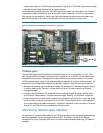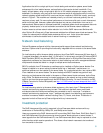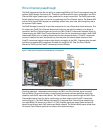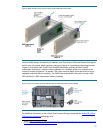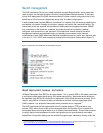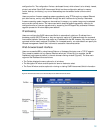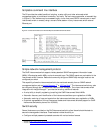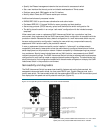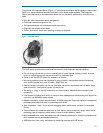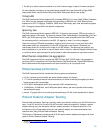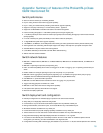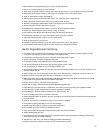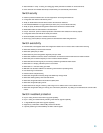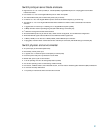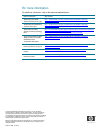
16
• The ability to set the interconnect switch to a valid firmware image in case of firmware corruption.
For more detailed information on the administration capabilities of the ProLiant BL p-Class GbE2
Interconnect Switch, see the ProLiant BL p-Class GbE2 Interconnect Switch user guides.
6
Virtual LAN
The GbE2 Interconnect Switch supports 255 port-based IEEE 802.1Q virtual LANs (VLANs). Members
of a VLAN may be untagged and tagged ports according to IEEE 802.3ac VLAN Ethernet frame
extensions for 802.1Q tagging. Therefore, GbE2 switch VLANs may span other switches that support
802.1Q tagging located within the network infrastructure.
Spanning tree
The GbE2 Interconnect Switch meets the IEEE 802.1D spanning tree protocol (STP) and provides 16
spanning trees per VLAN basis. The spanning tree per VLAN implementation is compatible with Cisco
PVST+ (per VLAN spanning tree). The interconnect switch is also compatible with Cisco PVST when
the connecting switch is configured to use 802.1Q tagging or when it is running untagged.
Users can configure STP switch parameters, including priority and cost, on a per port basis. Each
interconnect switch can automatically find the STP root bridge on the network. Otherwise, the
interconnect switch will act as the root bridge for the STP domain. The spanning tree protocol may
also be disabled on a per switch or per port basis, which is ideal for networks designed without loops
or individual switch ports connected to server blades or other devices where a loop does not exist.
EtherChannel compatible link aggregation
The GbE2 Interconnect Switch complies with IEEE 802.3ad (802.3-2002) static link aggregation
(excluding LACP
7
) compatible with Cisco EtherChannel (Fast EtherChannel, Gigabit EtherChannel).
Each interconnect switch supports twelve multi-port trunks with up to six ports per trunk.
Enterprise-class performance
The GbE2 Interconnect Switch includes the following performance features:
• 24 Gb/s external port bandwidth per server blade enclosure (full duplex).
• 17.9 million packets per second maximum external port frame forwarding throughput per server
blade enclosure (64-byte packets).
• 2,048 MAC addresses per switch with automatic MAC address learning.
• 128-MB Main, 32-MB flash, and 2-MB packet buffer memory per switch (packet buffer memory
shared between ports).
• Internal 10 gigabit fabric for providing packet switching at 20 Gb/s data bandwidth full duplex
ProLiant Network Adapter Teaming
ProLiant Network Adapter Teaming is typically used to provide fault resiliency for the NICs within the
team. If one NIC should fail, the surviving NICs maintain network connectivity. However, network
adapter teaming may also be used to maintain network services if an Ethernet switch fails. The
architecture of the p-Class system allows for both network adapter and interconnect switch fault
tolerance when using ProLiant Network Adapter Teaming.
The ProLiant p-Class servers include standard HP NC series network adapters that support all three
types of ProLiant Network Adapter Teaming:
6
Available at http://h18004.www1.hp.com/products/servers/proliant-bl/p-class/bl-p-interconnect-switch2.html.
7
Link Aggregation Control Protocol.



